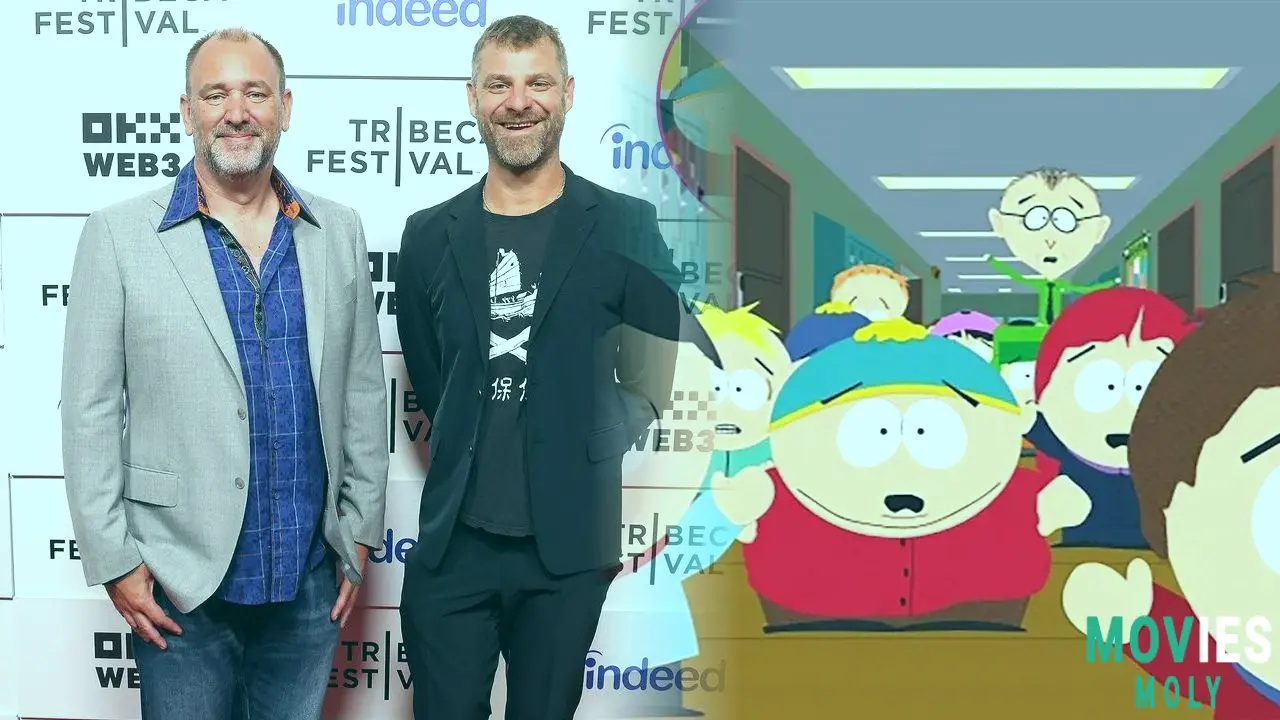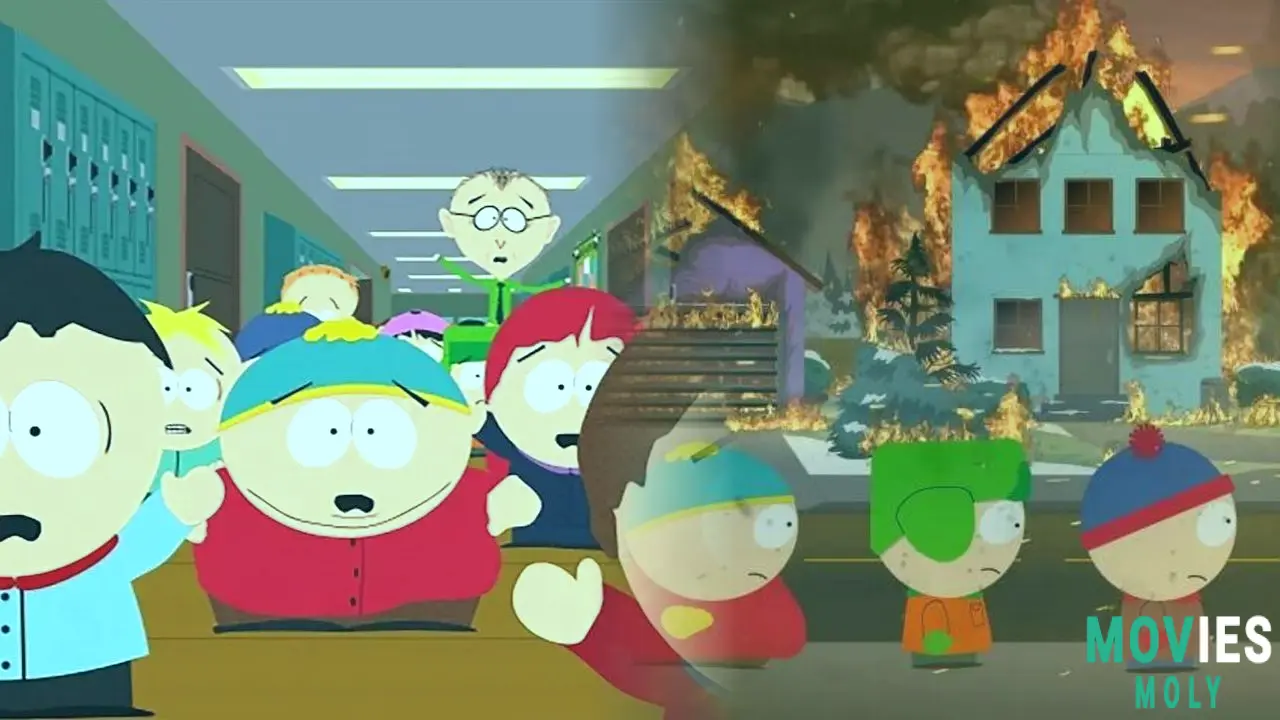As creators Trey Parker and Matt Stone are in a high-stakes contract dispute with Paramount Global, the future of the long-running animated comedy series South Park is uncertain. This is made worse by the fact that Paramount Global is about to combine with Skydance Media. This spat, which is said to be about a proposed $3 billion agreement, has already caused the program to be taken off of Paramount+ around the world and placed a shadow over the start of Season 27.
The Heart of the Dispute: Streaming Rights for South Park That Make a Lot of MoneyThe main point of the issue is a new 10-year, $3 billion deal for Parker and Stone. This would make their present arrangement, which ends in 2027, worth a lot more. Before Skydance got involved, Parker and Stone's company, Park County, thought it had a basic plan for this deal with Paramount.
The $3 Billion Deal: Prices and Things That Are Sticking
The $3 billion deal that has been suggested would be worth more than three times as much as the current $900 million contract, which runs until 2027. Reports say that Skydance is lobbying for a shorter five-year renewal because they need to keep their financial reserves safe in the fast-changing media world. This discrepancy in how long they want the contract to last is a big issue of disagreement.
What Park County and South Park Digital Studios Do
Paramount owns South Park, but South Park Digital Studios, a partnership between Parker, Stone, and Paramount, has the rights to stream it. This one-of-a-kind deal, which goes back to 2007, gives Park County around 50% of the streaming money. Reports claim that Parker and Stone have the last word on all contract talks for this joint business.
Important people: Trey Parker, Matt Stone, Paramount Global, and Skydance

The primary people involved are Trey Parker and Matt Stone, who created South Park; Paramount Global, which owns Comedy Central and Paramount+; and David Ellison's Skydance Media, which is buying Paramount.
Timeline of Trouble: How the Merger Made Talks Harder

As the streaming deals for South Park started to run out, the argument got worse. The show was taken off by Paramount+ around the world when its license ran out on June 30, 2025. A deal with Warner Bros. Discovery to keep HBO Max available in the US was extended, but the show's long-term future is still up in the air.
The start of Season 27 was moved from July 9 to July 23. Parker and Stone were open about how upset they were. They said on social media, "This merger is a shitshow and it's ruining South Park." We are at the studio working on new episodes, and we hope fans will be able to watch them somehow.
@FilmFanatic: Parker and Stone say the Paramount-Skydance deal is a "shitshow." Is that true? This "South Park" story really makes the point stronger. #MediaMergers
Legal Consequences: A Close Look at the Contractual Clash
The situation has gotten to the point where it seems more and more likely that legal action will be taken. Parker and Stone have hired well-known lawyer Bryan Freedman, who is known for being tough in court, to represent them. Kevin Morris, another lawyer for Park County, is also participating. Reports say he is sticking to the $3 billion claim.
Bryan Freedman and Kevin Morris: The Powerful Legal Teams
Bryan Freedman's involvement shows that they are serious about going to court. He is getting ready for a possible lawsuit that will say that the leaders of Skydance, such as CEO David Ellison and RedBird Capital executive Jeff Shell, got in the way of contract talks.
Skydance's Position: Approval Rights During Merger Talks
Skydance says that its deal with Paramount gives it the power to approve important contracts, even if the merger is still waiting for regulatory approval. This claim is at the heart of the disagreement.
However, Park County says that Skydance doesn't have the right to get involved until the merger is formally over. They have said that Jeff Shell, who is set to become the new president of Paramount if the merger goes through, has inappropriately affected their talks with other streaming services including Netflix and Warner Bros. Discovery. Park County says that Shell asked Warner Bros. Discovery to change its offering to include a 12-month exclusive window for Paramount+ and cut the arrangement from 10 years to 5 years. These changes would help Paramount at Park County's expense.
@LegalEagleEye: The legal case that Trey Parker and Matt Stone have against Paramount and Skydance could change the way creator contracts are handled when big companies buy them. This is a big deal.
Wider Effects on Paramount Global and the Media Business
This fight is about more than simply South Park; it shows how hard things are for Paramount Global and the entertainment industry as a whole. The fight could hurt investor trust and relationships with performers across all of Paramount's properties.
Past Examples: Other Creator-Studio Fights
It's not unprecedented for creators and studios to have high-profile fights in the media over streaming rights or merger meddling. A lot of the time, these fights are about who owns intellectual property and how to make money from material in changing distribution environments. The South Park case could set a standard for how contracts for creators are handled in the future when big companies buy other companies.
@MediaAnalystPro: The fight over "South Park" isn't just about a program; it's a very important test case for creators' rights in the age of streaming. The result will be a first.
Paramount's Post-Merger Strategy: A Changing World
The $8 billion merger between Paramount and Skydance has been delayed for a number of reasons, including legal and political difficulties, such as a lawsuit involving Donald Trump. This continued uncertainty has an effect on Paramount's overall streaming plan. The business had planned to move South Park to Paramount+ when the HBO Max arrangement ended in order to make its own platform stronger. This plan is harder to carry out because of the current conflict, which could slow down Paramount+'s increase in subscribers if a solution isn't found.
@HollywoodBiz: The $3 billion "South Park" sale shows how valuable established IP is. Studios are doing everything they can to keep their biggest assets safe.
Effect on the Animation Industry as a Whole
The animation industry often has to deal with problems related to creator rights and intellectual property. The South Park case shows how important it is to have explicit contracts, especially as streaming services change how content is distributed and paid for. The result might affect how other creators of animated shows negotiate their contracts and keep their work safe when companies buy or merge with each other.
What This Means for Fans of South Park: Season 27 and Beyond
The delayed start of Season 27 is the most important thing for fans right now. People are also upset that the show is no longer available on Paramount+ outside of the US. South Park is still on HBO Max in the US, but it's not clear where it will stream in the future.
@StreamWatcher: Seeing "South Park" taken off of Paramount+ is a strong reminder that even shows we enjoy may be affected by corporate mergers. Fans need more clear information.
Fan feelings are very important because a long fight could hurt viewership and platform loyalty. Despite the problems the company is having, the creators have all said they want the show to reach its audience.
Expert Outlook: Possible Solutions and Future OutcomesThere are a number of ways that the South Park issue could go forward. Because both Park County and Skydance are taking hard-line positions, a court battle is very likely. However, an out-of-court settlement is still possible because both sides know that they need to conclude things quickly.
To prevent extended lawsuits and bad press that could make its Paramount acquisition even harder, Skydance may have to make concessions over the deal's length or financial parameters. On the other hand, Parker and Stone might be under pressure because Park County took out a $800 million debt in 2023 that comes with high annual interest payments. This money issue could change the way they negotiate, even while their intellectual property backs the loan.
In the end, how this issue is resolved will not only decide the future of South Park, but it will also send a strong message to the entertainment industry about creator rights, corporate control, and the worth of material in the streaming age.






